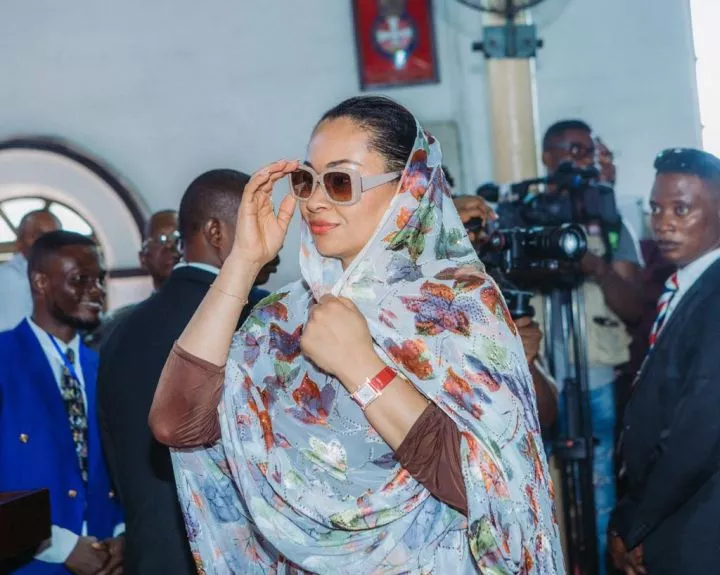
As lawyers responsible in recent White Houses for enforcing the rules against foreign government presents for presidents, we believe Donald Trump is transgressing them in the most brazen of ways. We’re not just talking about his apparent eagerness to accept an airplane valued at about $400 million from Qatar. His crypto entanglements are just as bad — perhaps even worse.
Let’s start with the plane. The Qatari royal family may donate a luxury Boeing 747-8 that will be upgraded to serve as Air Force One. Mr. Trump has long coveted a new presidential plane. He reportedly toured the Qatari-owned 747-8 this year when it was parked at a Florida airport.
This arrangement has been blessed by his White House counsel, David Warrington, and his attorney general, Pam Bondi, on the theory that Mr. Trump is not getting the plane, the United States is.
Yet Mr. Trump would be personally benefiting from the use of the plane while in office and could continue to do so after he leaves office. Functionally, this is a gift to him, notwithstanding the rationalizations offered by administration lawyers.
The foreign emoluments clause of the Constitution forbids the president from accepting a present or emolument — a benefit, or anything of value — from a foreign government without permission from Congress. That was an issue we litigated in a series of cases during the first Trump term; in each one, judges held that Mr. Trump could not accept various items of value from foreign states (the Supreme Court dismissed the cases as moot after his term ended).
Mr. Trump’s defenders may argue that there is precedent for transferring an Air Force One plane to a president. One used by several presidents was decommissioned in 2001 and was given to the Reagan Library. But the comparison is inapt: The Air Force One that sits at the Reagan Library did not start out in the hands of a foreign government. Nor was it made available for Ronald Reagan’s personal use — it was retired and simply went straight to his library. (Mr. Trump denies that he will travel in the plane after his term ends.)
The other big Trump emoluments issue concerns crypto and another country on his current Middle East tour. A venture fund backed by the government of Abu Dhabi in the United Arab Emirates is reportedly conducting a business transaction using $2 billion in a stablecoin, USD1, offered by the Trump family crypto company, World Liberty Financial. This enterprise is largely owned by Mr. Trump and his family, and the president is listed as “chief crypto advocate.” This digital currency is pegged to the U.S. dollar. Mr. Trump and his family stand to profit handsomely.
This business and Mr. Trump’s other crypto ventures, like his Trump meme coin, provide a virtually limitless opportunity for foreign governments to pump emoluments to Mr. Trump. All a foreign government need do, like the state-backed Emirati investment firm, is to put cash in World Liberty Financial.
This also runs afoul of the foreign emoluments clause — and it captures why we have these rules in the first place. The conflict of interest is clear. How can we trust someone who is in charge of regulating crypto if he could benefit from lax regulation?
Mr. Trump has heightened this concern about impropriety with stunts like giving the top buyers of his $Trump meme coin personal access to him at a private dinner. Even worse, he has put White House entry up for sale, with the very largest purchasers offered a tour. Of course, he is not the first president to court scandal with such access; donor sleepovers in the Lincoln Bedroom during the Clinton administration come to mind. But those donations pale by comparison to the amounts at stake in Mr. Trump’s crypto auction.
Thankfully, there is something that can be — and is being — done about these emoluments conflicts. Last week, more than 40 Senate Democrats (joined by two Republicans) stepped up to block the Guiding and Establishing National Innovation for U.S. Stablecoins Act of 2025. The bill fails to address the obvious issue of a president meant to be regulating crypto who is speculating in crypto. Senator Elizabeth Warren noted that the bill would make “it easier for the president and his family to line their own pockets,” and others criticized the bill for its lack of protections against money laundering.
Opponents of this bill should not yield unless Congress is willing to put restrictions on Mr. Trump’s crypto investments, including at a minimum barring him from accepting emoluments from foreign governments. For example, Congress could mandate that Mr. Trump’s investments go into a genuinely blind trust over which he has no control. That is what Jimmy Carter did with his peanut farm.
Moreover, a revised crypto bill should also address the potential new Air Force One. The Constitution provides that foreign emoluments may be accepted only if approved by Congress. Not only does that body have ample ethics reasons to block the gift, it is also a national security nightmare. Experts are already raising questions about whether the plane will be free of surveillance concerns.
We were part of the efforts to curb Mr. Trump’s emoluments in his first term. Given his rampant disregard for the Constitution, it’s probably only a matter of time before another case is brought against him building upon the broad reading of the emoluments clause that we previously secured.
The American people should make their disgust known: There is no room for this kind of flagrant disregard of the Constitution in the skies above or in digital wallets down below.




